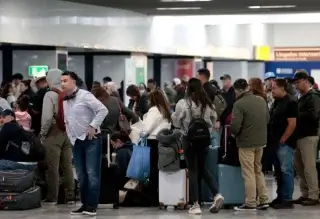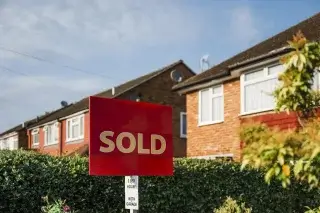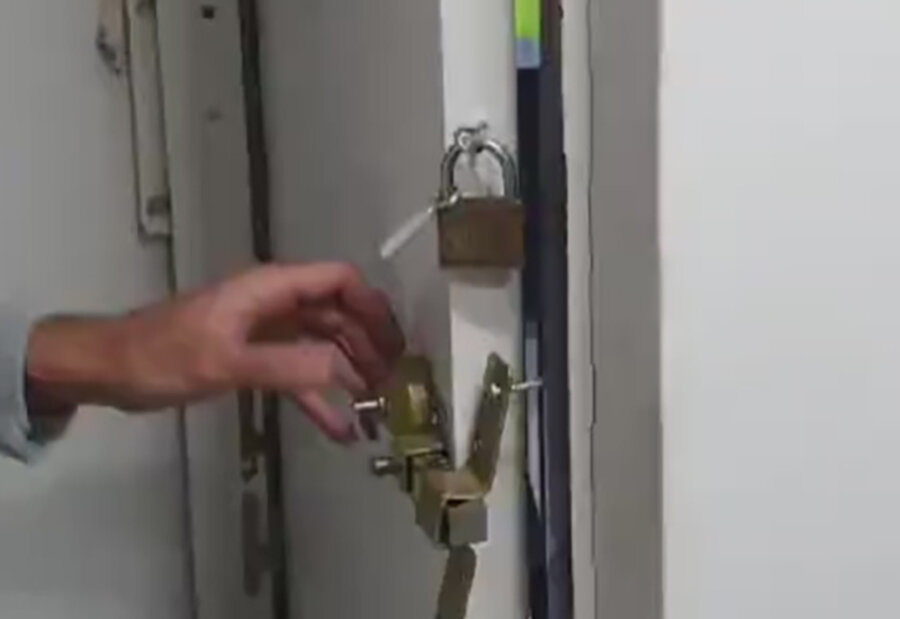read also
 Inflation in Romania Slows to 9.6% but Remains Above Forecast
Inflation in Romania Slows to 9.6% but Remains Above Forecast
 Riots in Mexico Disrupt Air Links to Resort Destinations
Riots in Mexico Disrupt Air Links to Resort Destinations
 UK House Prices Stabilise After 2025 Slowdown
UK House Prices Stabilise After 2025 Slowdown
 Israel Housing Market Eyes a Reset in 2026
Israel Housing Market Eyes a Reset in 2026
 Real Estate Investment Declines in Southeast Europe in 2025
Real Estate Investment Declines in Southeast Europe in 2025
 Asia Becomes the Engine of Global Aviation
Asia Becomes the Engine of Global Aviation
Squatters Continue to Dispossess Homeowners in Spain

Spain has seen growing calls for tougher laws against squatters, known as "okupas", who illegally occupy properties. However, legal loopholes and slow judicial processes continue to favor the squatters, leaving homeowners battling for years to reclaim their properties. Many face legal setbacks, are forced to pay squatters to vacate, and warn against buying property in Spain—especially for foreigners.
A Foreign Investor’s Nightmare: The Case of Oleg Pokrovsky
Oleg Pokrovsky from Belarus purchased an apartment in Barcelona for €200,000, intending to rent it out for income, according to Zerkalo. He took out a mortgage to finance the purchase. However, instead of generating rental income, he faced massive financial losses:
First, he was fined €60,000 for renting the property without a special license—a sum greater than his initial mortgage down payment.
To avoid further issues, he stopped renting out the apartment and registered his mother as a resident. She spends part of the year in Belarus and about six months in Barcelona, as reported by Holod.
Despite these measures, the property was forcibly taken over by squatters, who broke in, threw his mother’s belongings from the balcony, and refused to leave.
Legal System Favors Squatters Over Owners
Under Spanish law, police cannot remove squatters if more than 48 hours have passed since the illegal occupation. In Pokrovsky’s case, the police refused to intervene, citing the presence of a pregnant woman among the squatters.
The intruders—two Colombian men and a woman—had traveled to Spain specifically to occupy a home. In Barcelona, organized groups actively scout empty properties for squatters, making such takeovers highly coordinated.
Pokrovsky repeatedly confronted the intruders in his apartment building. One of them attacked him with a knife, cutting his nose and nearly injuring his eye. Though he reported the attack to the police, no action was taken.
When the case finally reached court, it was delayed indefinitely because the squatters’ identities could not be confirmed.
Attempted Repossession Leads to Owner’s Arrest
Frustrated, Pokrovsky and his brother attempted to reclaim the apartment themselves. Inside, they found small bags of white powder, which they believed to be drugs, a common issue with squatters.
However, when they tried to occupy their own property, the squatters called the police. Officers arrived and sided with the squatters, telling Pokrovsky:
“This may be your property, but this is not your home—other people live here.”
They ignored the suspected drugs in the apartment and instead arrested Pokrovsky and his brother, detaining them for two days.
According to the police report seen by Holod, Pokrovsky was charged with:
- Unlawful forced entry into the apartment
- Assault with a hammer
- Threatening the squatters to force them out
- Changing the locks and damaging the door
Meanwhile, the squatters continued living in the apartment, rent-free.
The Court Finally Rules, But Eviction Is Delayed
Four months later, a new legal appeal was filed, arguing that anyone other than the legal owner was unlawfully occupying the property.
During the hearing, the squatters claimed they were unemployed, receiving aid from the Red Cross, and could not be evicted. Instead, they demanded that the apartment be given to them permanently.
The court eventually ruled in Pokrovsky’s favor, but bureaucratic delays mean that the eviction process is still months away. For over a year, the squatters have lived in the apartment without paying rent, while the owner continues paying the mortgage, maintenance fees, and property taxes.
Even after eviction, there is no guarantee the apartment will be in livable condition. Many squatters destroy the property, vandalizing walls, plumbing, and appliances before they leave.
Pokrovsky warns anyone considering property investment in Spain:
"It’s a good place to live—if you don’t own anything. Renting gives you the flexibility to leave if something goes wrong. Owning a property here brings more problems than benefits."
Even security systems and alarm installations cannot prevent squatting, as they only record the moment squatters break in—which is irrelevant once the 48-hour police intervention window closes.
Squatting Crisis: A Widespread Problem Across Spain
Another property owner, posting on Threads, stated that he has been trying to reclaim his property for over a year. A court ruling in November 2024 ordered the squatters to leave, but they remain in the apartment in 2025, having filed an appeal to delay eviction.
Legal battles are expensive for property owners, while squatters receive free legal aid.
Some cases last over 10 years, with owners unable to reclaim their homes.
Many believe the Spanish government uses squatting as a substitute for public housing.
One commenter noted:
"Instead of building social housing, the state allows people to occupy private homes. Laws protect squatters, while property owners are forced to keep paying bills. And God forbid you try to cut off water or electricity if the squatters have children—you’ll be sued!"
Homeowner Arrested for Entering Her Own House
In November 2024, police in Benetússer (Valencia) arrested a homeowner after she entered her own house, which had been occupied by squatters for two years.
Instead of helping her reclaim the property, authorities forced her to leave and issued an arrest warrant.
At the end of 2023, Spain had over 80,000 illegally occupied properties, with more than 30% in Catalonia. Despite the rising crisis, police reports of squatting have decreased, as many owners do not even bother filing complaints, knowing how difficult it is to win a case.
According to experts from Institut Cerdà:
75% to 80% of occupied properties belong to individuals or companies owning multiple properties.
Squatters often take over public housing, skipping waitlists.
Rental fraud (inquiocupación) is also growing—tenants sign leases, stop paying rent, and live for years without consequences.
A Russian property owner in Catalonia spent nearly three years trying to evict non-paying tenants.
Will Spain’s New Law Finally Change the Situation?
In 2025, Spain’s Congress of Deputies approved a new anti-squatting law, aiming to accelerate eviction cases. The law requires:
✔ Courts to summon squatters within 72 hours
✔ Oral hearings to conclude within 15 days
✔ Judges to issue rulings within 3 days of the hearing
However, Jose Ramón Zurdo, Director of the Housing Rental Agency (ANA), warns that the process will still be slow:
"In cases involving vulnerable squatters, social services must intervene, which will delay the process further."
Additionally, the law only applies to cases of forced entry and illegal break-ins, excluding cases of rental fraud (inquiocupación).
While new legal reforms might speed up some evictions, many landlords remain skeptical. Spain’s pro-squatter legal system, combined with slow bureaucratic processes, continues to favor illegal occupants over property owners.
For foreign investors, Spain’s property market remains high-risk. Until enforcement improves, buying real estate in Spain could be more trouble than it's worth.


